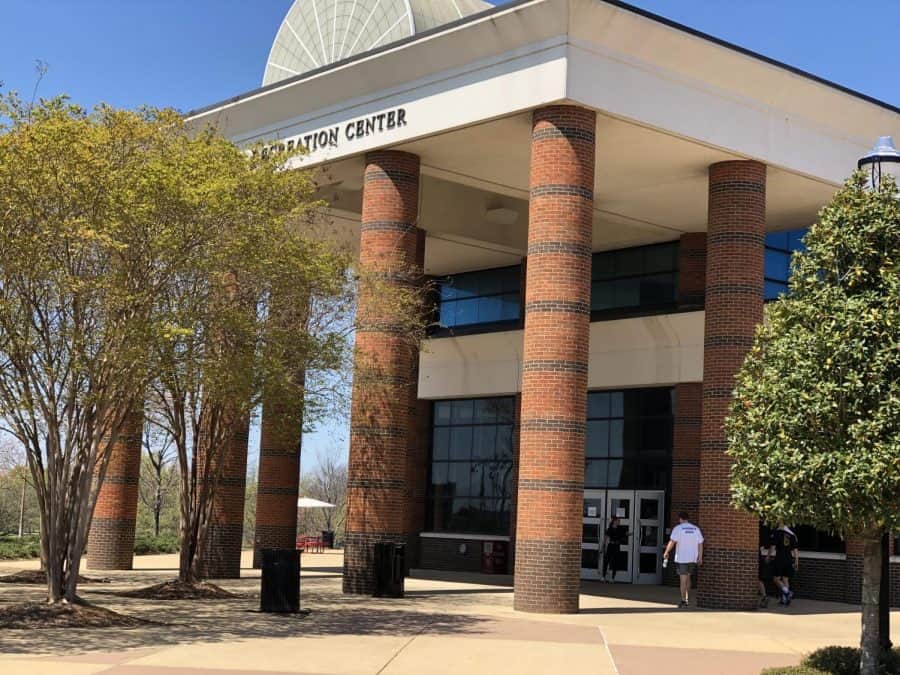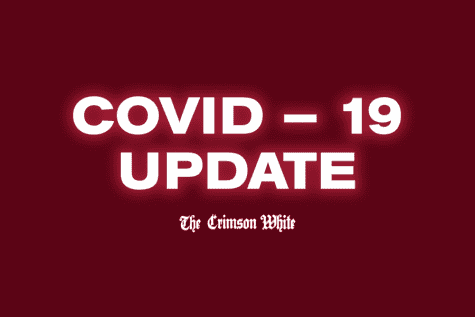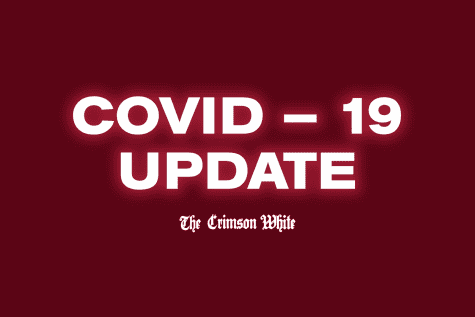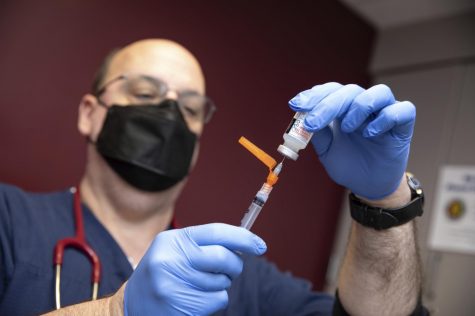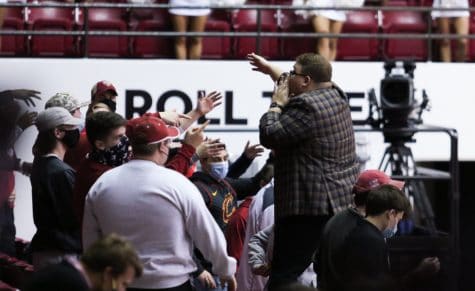Updated: Inactive student workers to receive final paycheck next week
March 30, 2020
Update, April 17 – After being informed they would still be paid through “limited business operations” on April 2, inactive student workers have now been told that their payments will end soon.
“Student employees, including those not required to be at work, will continue to be paid during limited business operations,” a UA email stated on April 2. “Those who cannot locate their pay stubs should check their email or contact Human Resources.”
But on April 16, UA announced in an email that student employees who are not actively working will be receiving their final paycheck of the semester on or around April 24.
Though the University is still under limited business operations, the discrepancy is not a result of a change in policy; rather, it was due to a change in messaging. The full policy has always stated that, under limited business operations, students employees would continue to get paid “until further notice.” This phrase was missing from the April 2 email.
The final check will cover April 6 through April 17. Student employees who are still working will be contacted by their supervisors for information on how to record their hours after April 17.
For student employees with current or future needs visit the emergency assistance website for links to short-term financial and other assistance programs. For more local assistance, check out the CW’s COVID-19 Resource Guide.
The story has been updated to reflect that there was never a change in policy; rather, a UA email omitted part of the policy.
Update, April 8 – For many student workers, today was paycheck day, and, according to a new policy, it won’t be their last.
On April 2, UA announced in an email that all student workers will be paid during limited business operations.
The confirmation came after UA Students for Fair Labor-United Students Against Sweatshops Local 144 launched their #StudentWorkerWednesdays Twitter campaign on April 1.
“Our goals with Student Worker Wednesdays was to emphasize the importance of highlighting that students are workers too and that we deserve the university to hear our needs and to act on them,” said Colleen Berry, a member of UA Students for Fair Labor-USAS Local 144.
Berry said before the University confirmed that students would be paid, she nor her friends knew. She said with their first demand met, they’ve moved onto their second one: that the University should be more communicative with its workers.
Berry said UA Students for Fair Labor-USAS Local would like to keep in contact with student workers through the group’s email, [email protected].
The headline on this story has been updated to reflect the updated message. The story below has been updated with specific dates of correspondence.
As students geared up for online instruction this week, several will be missing more than the classroom space. Without a working campus, some student employees will be missing a lifeline.
On March 12, the University urged students not to return to campus after spring break, with some limited exceptions. Those exceptions were then made obsolete when it was announced that residence halls and recreation facilities would be closed and that dining halls, food courts and libraries would not be readily available. Now, with the campus closed, some student employees wonder where their next paycheck will come from.
“We were just kind of blindsided by it,” said Kaley Mills, a senior news media major and an undergraduate assistant for the office of orientation and special programs.
Mills said everything happened so quickly that she nor her office were prepared for it. With the first announcement that classes would shift to online, Mills thought she would still be able to go back to work. But when the University announced on March 18 that campus facilities would close, she realized she couldn’t.
Under limited business operations, which have been extended through the semester, the University categorizes workers into three groups. Group 1 workers are essential to on-campus tasks, while Group 2 workers are still essential, but can work remotely. Group 3 workers are not deemed essential and will not be needed in a remote setting, such as skilled crafts and service/maintenance employees. These workers will still be paid, but the policy gets tricky when it comes to student workers.
“Every situation is different,” Deidre Stalnaker, a university spokesperson, said in an email on March 18. “Student workers should contact their supervisors with questions” related to their group status.
As of March 30, students on federal work study are the only Group 3 student employees with guaranteed pay, according to FAQs on healthinfo.ua.edu. Student assistants in still-functioning offices are also eligible to work, but the decision is ultimately up to their department.
These exceptions don’t protect students like Mills, whose office had to downsize.
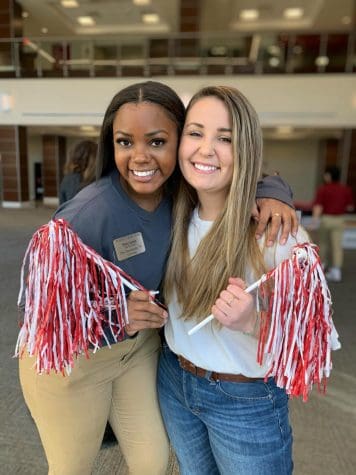
“It affected a lot of us in our office because it just kind of swooped in and just took over,” she said.
Katie Nunez, a building manager at the Ferguson Student Center and a junior majoring in public relations and international studies, was at work on Wednesday, March 11, during President Donald Trump’s COVID-19 address.
“It was just so strange,” Nunez said. “That was happening, but it felt like the University wasn’t really responding, so it was a juxtaposition of knowing everything was going crazy around the country, but feeling completely calm in Alabama.”
She said it was like a scene out of a movie.
“I remember sitting outside the Ferg reading the news, and everything was so pretty, and everybody was out and about, and the birds were chirping, but everything was going insane,” Nunez said.
Jamelia Williams, a resident advisor (RA) and a sophomore majoring in secondary math education, said she panicked at first. Her monthly RA stipend was Williams’ main source of income, and because her job depended on students living on campus, she said she knew she was going to be unemployed.
Though many RAs were forced to move out, Williams said she was grateful to the University for continuing to pay her. Other student workers, however, weren’t as lucky.
Mills said she’s not being paid while the campus is closed, and Nunez is still waiting on word from her supervisor.
After a conversation with a friend who was also a student employee, the realization hit Mills that she wasn’t going to have a job, and she didn’t have the time to prepare for that. She said she did have parents who would help her financially, but that could be limited because of the possibility of their jobs being on the line.
“It’s really heartbreaking for me because I’ve always been independent,” she said. “I’ve always been someone that usually pays for my own things and doesn’t have to ask for help, but without having this income, it’s just made me have to swallow my pride and ask for help because I can’t do it on my own.”
Yet, while the students have not received monetary support from their respective departments, they acknowledged support from their supervisors and the University in other ways.
“I feel lucky to miss my job and miss my coworkers,” Nunez said. “I didn’t realize how much I loved it.”
Mills said her employer has been there for the student employees, frequently checking up on them and inquiring about if they are taking care of themselves.
“They’re there for us to help us through those difficult times, and it’s been really reassuring,” she said.
Williams said her questions were consistently heard and answered by her employer. She said the correspondence from the University showed they cared about her as an employee and a student.
Now with the University closed and classes online, Mills, Nunez and Williams have all decided to return to their hometowns, spend time with their families and join the rest of the population in patiently waiting to see how long quarantine will last.
“I understand why we can’t go back to work, like I completely agree with it,” Nunez said. “It’s following the recommendations of science and whatnot, but I really wish that I could be working.”
The Crimson White has requested a detailed breakdown on the total number of student workers in the following groups: Federal Work Study, Group 2 employees and unpaid Group 3 employees. This story will be updated with any response.

